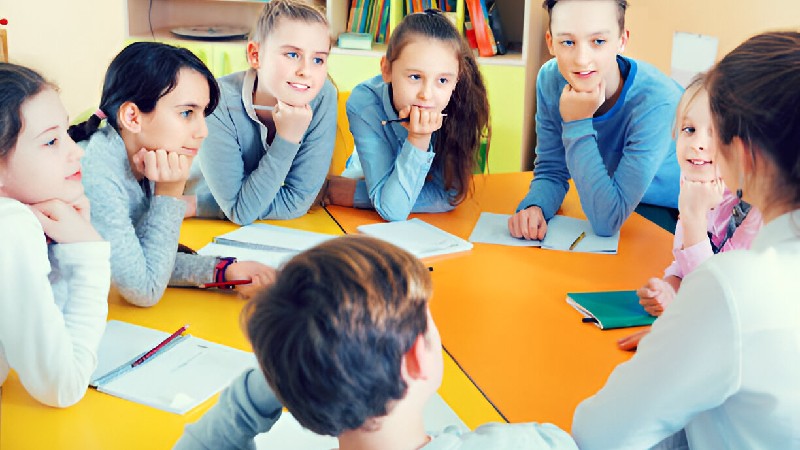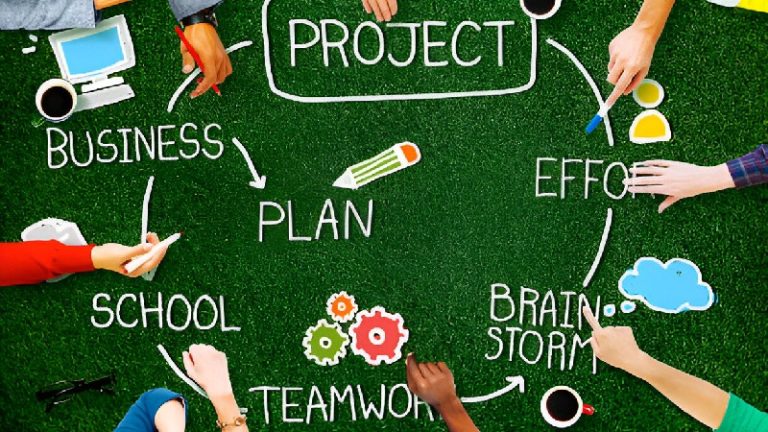In a world driven by rapid innovation and complex problem-solving, traditional education models are increasingly challenged to keep pace. Enter The Power of Project-Based Learning (PBL), a transformative approach that moves beyond rote memorization and standardized tests. The PBL cultivates “future-proof” skills – the adaptability, creativity, and collaborative spirit essential for thriving in tomorrow’s dynamic landscape.
The Power of Project-Based learning transcends subject silos, fostering interdisciplinary thinking and mimicking the real-world scenarios where knowledge is applied, not just memorized. The critical role of metacognition within PBL, empowering students to reflect on their learning journey, understand their strengths, and navigate challenges with resilience.
This approach isn’t merely about completing a project; it’s about developing the cognitive agility to adapt, innovate, and lead in a rapidly evolving world.
The Power of Project-Based Learning and Metacognition

Traditional education often prioritizes content mastery, leaving students ill-equipped to tackle novel problems or adapt to changing circumstances. The Power of Project-Based Learning, however, places a premium on metacognition – the ability to think about one’s thinking. Within PBL, students are not just recipients of information; they become active investigators, constantly reflecting on their processes, strategies, and understanding. This metacognitive approach builds cognitive agility, enabling students to analyze, synthesize, and apply knowledge in diverse contexts.
For example, a PBL project focused on designing a sustainable urban garden might require students to research botany, urban planning, and resource management. Throughout the project, they engage in regular reflection, documenting their research, evaluating their design choices, and adjusting their strategies based on feedback. This process of continuous reflection and adaptation fosters a deeper understanding of the subject matter and cultivates the cognitive flexibility needed to navigate complex, real-world challenges.
Building Future-Proof Learners
Metacognitive reflection within PBL is not just about academic growth; it’s about building resilience. When students encounter obstacles, they learn to analyze their missteps, identify alternative solutions, and persevere. This process of iterative problem-solving fosters a growth mindset, where challenges are seen as opportunities for learning and development.
- Journaling and Reflection Logs: Students document their learning journey, noting challenges, insights, and strategies.
- Peer Review and Feedback: Students provide and receive constructive feedback, fostering self-awareness and collaborative learning.
- “Lessons Learned” Sessions: At the end of a project, students reflect on their successes and failures, identifying key takeaways for future endeavors.
These practices cultivate self-directed learners who are not only knowledgeable but also adaptable and resilient – crucial attributes for navigating the uncertainties of the future.
The Power of Project-Based Learning Beyond Siloed Subjects
The real world rarely presents problems that fit neatly within a single subject area. The Power of Project-Based Learning breaks down traditional subject silos, encouraging students to integrate knowledge from diverse disciplines. This interdisciplinary approach fosters innovation by enabling students to see connections between seemingly disparate fields, leading to creative solutions and novel perspectives.
Consider a project focused on developing a community-based renewable energy solution. Students might need to apply principles of physics, engineering, economics, and social science to design and implement their project. This integrated approach not only deepens their understanding of each subject but also cultivates their ability to think holistically and develop innovative solutions to complex problems.
PBL and Future-Proof Skill Development
| Skill | PBL Application | Real-World Relevance |
| Cognitive Agility | Metacognitive reflection, iterative problem-solving | Adaptability to changing environments, rapid learning |
| Interdisciplinary Thinking | Integration of diverse subjects, holistic problem-solving | Complex problem-solving, innovative solutions |
| Collaboration and Communication | Team-based projects, peer review | Effective teamwork, clear communication |
| Critical Thinking and Analysis | Research, evaluation, and synthesis of information | Informed decision-making, evidence-based reasoning |
| Creativity and Innovation | Design thinking, solution development | Entrepreneurship, creative problem-solving |
In Action
The benefits of The Power of Project-Based Learning extend beyond the classroom. It empowers students to become active citizens and changemakers, capable of addressing real-world challenges.
- Community-Based Projects: Students collaborate with local organizations to address issues like environmental sustainability or social inequality.
- Entrepreneurial Ventures: Students develop business plans and prototypes for innovative products or services.
- Citizen Science Initiatives: Students participate in research projects, contributing to scientific knowledge and addressing pressing environmental concerns.
For instance, a group of high school students might partner with their local government to design and implement a public awareness campaign about climate change. This project not only deepens their understanding of environmental science but also develops their communication, advocacy, and project management skills.
Conclusion
The Power of Project-Based Learning is not just an educational methodology; it’s a catalyst for cultivating future-proof skills. By fostering metacognition, promoting interdisciplinary thinking, and empowering students to address real-world challenges, PBL prepares them to thrive in a rapidly evolving world. As educators embrace this transformative approach, they are not just teaching content; they are nurturing innovators, problem-solvers, and leaders who will shape the future.
F.A.Q.s
Q: What is the main focus of this article on the power of project-based learning?
A: This article focuses on how PBL cultivates “future-proof” skills, like cognitive agility and interdisciplinary thinking, that are essential for success in a rapidly changing world.
Q: How does the power of project-based learning foster cognitive agility?
A: By emphasizing metacognition, PBL encourages students to reflect on their learning processes, analyze challenges, and adapt their strategies, building cognitive flexibility.
Q: What is the role of metacognition in project-based learning?
A: Metacognition helps students understand their own thinking, enabling them to analyze, synthesize, and apply knowledge effectively. It also builds resilience by teaching them to learn from mistakes.
Q: How does project-based learning promote interdisciplinary innovation?
A: PBL breaks down traditional subject silos, encouraging students to integrate knowledge from diverse disciplines to solve complex, real-world problems.
Q: What are some examples of how project-based learning can have a real-world impact?
A: Examples include community-based projects, entrepreneurial ventures, and citizen science initiatives, where students apply their learning to address real-world challenges.
Q: How does PBL help to build resilient learners?
A: Through reflective practices like journaling and peer review, students learn to analyze missteps, identify solutions, and persevere, developing a growth mindset.
Q: What is meant by “future-proof” skills in this context?
A: These are skills like adaptability, creativity, and collaborative spirit, which are essential for navigating the uncertainties and complexities of the future.
Q: How does PBL differ from traditional learning methods in terms of skill development?
A: Traditional methods often focus on content mastery, while PBL emphasizes the development of cognitive and practical skills needed for real-world application and innovation.
Q: What are some of the benefits of interdisciplinary projects?
A: Interdisciplinary projects allow students to see the connections between different subjects, which leads to deeper understanding and creative problem solving.
Q: How does project based learning help with collaboration and communication skills?
A: By requiring group work, and peer review, students are required to learn how to communicate effectively, and collaborate with others to achieve a common goal.


